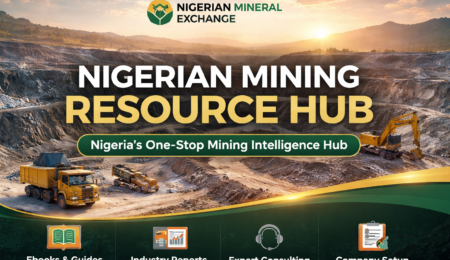Nigeria’s mining sector is booming, with over 44 mineral types across 500+ locations and increasing global investor attention. However, success in this market doesn’t depend solely on discovering minerals—it depends on staying compliant with Nigerian mining laws and regulations.
For investors, legal compliance is not just paperwork; it’s the difference between a profitable project and a costly failure. Here’s what every investor should know before entering Nigeria’s mining industry.
1. The Governing Law: Nigerian Minerals and Mining Act (2007)
The Nigerian Minerals and Mining Act (2007) is the foundation of mining regulation in the country. It outlines:
- Mineral ownership (all minerals belong to the Federal Government)
- Licensing procedures (exploration, small-scale, and large-scale mining)
- Rights and obligations of investors
- Environmental and community requirements
👉 Takeaway: No investor should enter Nigeria without a working understanding of this Actor, or a trusted partner who does.
2. Key Regulatory Bodies You Must Know
- Ministry of Solid Minerals Development (MSMD): Policy oversight and regulation
- Mining Cadastral Office (MCO): Granting and managing licenses
- Nigeria Geological Survey Agency (NGSA): Geological data and surveys
- Mining Inspectorate Division: Compliance monitoring and enforcement
👉 Takeaway: Successful projects require coordinated compliance with multiple agencies, not just one office.
3. Types of Mining Licenses Available
Investors can apply for:
- Reconnaissance Permit (non-exclusive, initial exploration)
- Exploration License (exclusive rights for exploration in a defined area)
- Mining Lease (for commercial-scale mining)
- Small-Scale Mining Lease (for smaller operations)
- Quarry Lease (for industrial minerals and aggregates)
👉 Takeaway: Choosing the right license depends on your investment size, mineral of interest, and long-term goals.
4. Environmental Compliance Is Mandatory
Investors must comply with Environmental Impact Assessment (EIA) requirements before commencing operations. This includes:
- Environmental permits
- Community development agreements (CDAs)
- Rehabilitation and reclamation plans
👉 Takeaway: Non-compliance leads to license revocation, fines, and reputational damage.
5. Taxation and Incentives
Nigeria provides incentives to attract mining investors, such as:
- Tax holidays (3–5 years)
- Duty-free importation of mining equipment
- Exemption from customs duties on plant machinery
- Full repatriation of profits for foreign investors
👉 Takeaway: Compliance not only avoids penalties but also opens the door to attractive financial benefits.
How We Help You Stay Compliant and Profitable
At the Nigerian Mineral Exchange, we guide investors through the legal maze so they can focus on building profitable mining ventures.
1. The Nigerian Mining Investment Navigator
We handle project vetting, licensing checks, and regulatory compliance, ensuring you avoid hidden legal risks.
👉 Book your consultation now on Selar
2. Mining & Mineral Trading Company Setup (Nigeria)
We establish your business legally, secure the right licenses, and manage compliance from day one.
👉 Launch your mining venture today on Selar
3. Unlocking Nigeria’s Mineral Wealth: 113 Lucrative Business Ideas (Ebook)
A guide to profitable opportunities across Nigeria’s mineral value chain—with compliance insights included.
👉 Download instantly on Selar
📘 The Nigeria Mineral Trading & Licensing Blueprint (2026 Edition)
If you are serious about buying, selling, or trading minerals legally in Nigeria, you cannot afford to rely on guesswork, outdated advice, or hearsay. The regulatory environment is tightening fast, and costly mistakes now lead to permit denials, seizures, or permanent blacklisting.
That’s why we created The Nigeria Mineral Trading & Licensing Blueprint: 2026 Guide to Buying Center Licenses & Purchase Permits — an updated, clear, step-by-step, insider guide that shows you exactly how to obtain Mineral Buying Center Certificates, Purchase & Possession Permits, and related approvals without delays or regulatory traps.
This guide distills real regulatory procedures for 2026, compliance requirements, and practical insights used by serious operators — saving you months of confusion, wasted money, and avoidable risk.
If mineral trading is part of your business future, this blueprint is not optional — it’s protection.
Final Thoughts
Legal compliance in Nigerian mining is not optional; it’s the foundation of a secure, profitable investment. By understanding the laws, working with the right agencies, and partnering with experts who know the system, you can enter Nigeria’s mining industry with confidence.
Compliance today means profit tomorrow.
READ ALSO:





Leave a Reply